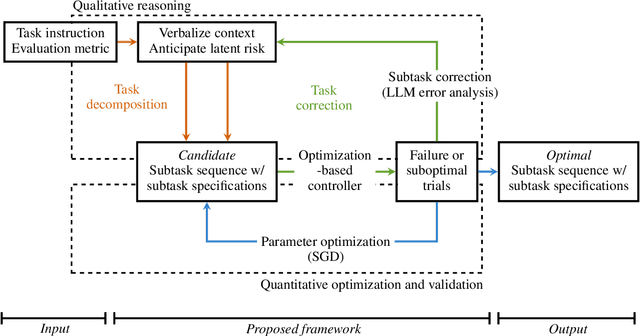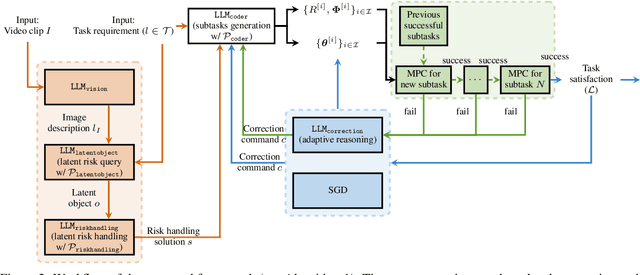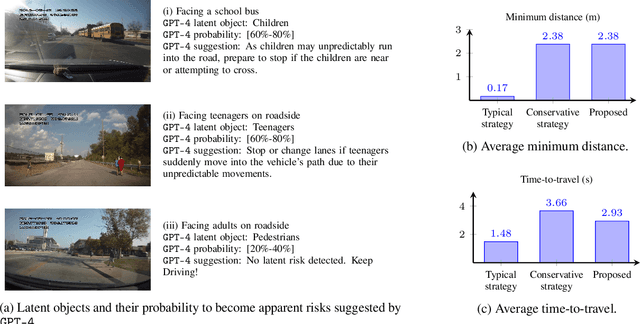Anh Van Ho
Context-aware LLM-based Safe Control Against Latent Risks
Mar 18, 2024



Abstract:It is challenging for autonomous control systems to perform complex tasks in the presence of latent risks. Motivated by this challenge, this paper proposes an integrated framework that involves Large Language Models (LLMs), stochastic gradient descent (SGD), and optimization-based control. In the first phrase, the proposed framework breaks down complex tasks into a sequence of smaller subtasks, whose specifications account for contextual information and latent risks. In the second phase, these subtasks and their parameters are refined through a dual process involving LLMs and SGD. LLMs are used to generate rough guesses and failure explanations, and SGD is used to fine-tune parameters. The proposed framework is tested using simulated case studies of robots and vehicles. The experiments demonstrate that the proposed framework can mediate actions based on the context and latent risks and learn complex behaviors efficiently.
 Add to Chrome
Add to Chrome Add to Firefox
Add to Firefox Add to Edge
Add to Edge